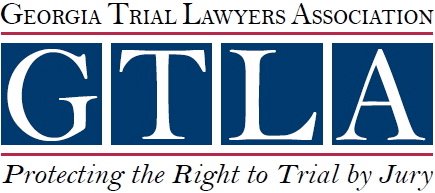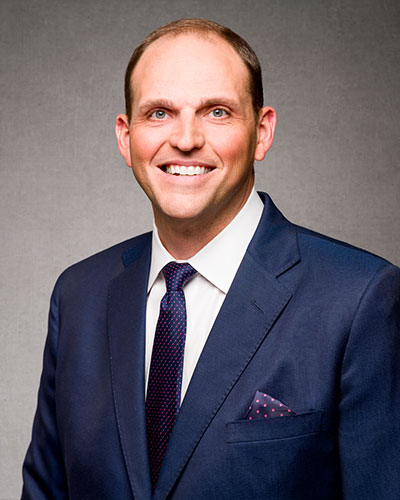Losing a loved one in a boat accident is a heartbreaking experience that no family should have to endure. In the aftermath, families often face the daunting task of seeking justice and accountability for their loss. While a wrongful death claim can provide financial compensation and a sense of closure, the legal journey can be filled with challenges. Understanding these obstacles is important when navigating the legal process in Georgia, as the specifics of such claims often present unique difficulties. At, Princenthal, May & Wilson, LLC, we are here to guide you through the legal process and help you navigate the complexities of your case.




Determining Fault in a Boat Accident
One of the first challenges families face when pursuing a wrongful death claim is proving who was responsible for the accident. Boating accidents often involve many factors, such as operator error, mechanical failure, or unsafe water conditions. To establish liability, it must be shown that the person or entity being sued was directly responsible for the incident. However, gathering the necessary evidence can be complicated, especially in cases where witnesses provide conflicting accounts or physical evidence is difficult to obtain.
In Georgia, negligence plays a key role in determining fault. A claimant must prove that the responsible party acted carelessly or recklessly, causing the accident and resulting in the death of a loved one. This can involve investigating whether the boat operator followed all applicable laws, including speed limits and requirements for safety equipment. If the accident occurred due to a mechanical failure, proving that a manufacturer or maintenance provider is liable can require technical experience and detailed inspections.
Understanding Georgia’s Wrongful Death Laws
Georgia has specific laws that govern wrongful death claims, and these laws can sometimes create hurdles for grieving families. Only certain individuals, such as a spouse, children, or parents of the deceased, have the legal standing to file a claim. Additionally, there are time limits to consider. Georgia law requires that wrongful death claims be filed within two years of the date of death. This may seem like a long time, but families dealing with grief and other immediate concerns may find it challenging to act quickly.
Another potential issue involves how damages are calculated. Georgia law allows families to recover the full value of the life of the deceased, which includes both tangible financial losses like lost income and intangible aspects such as the loss of companionship. While this may seem straightforward, determining these amounts often leads to disputes between the claimant and the party being sued. Insurance companies or defense attorneys may try to downplay the value of the deceased’s life, requiring strong evidence and persuasive arguments to secure fair compensation.
Complications With Insurance Companies
Insurance companies frequently play a central role in wrongful death claims after a boat accident. While their purpose is to provide financial compensation, they often work to minimize payouts. This can be frustrating and emotionally draining for families seeking justice. Insurance companies may dispute liability, claim that the deceased was partially at fault, or argue that the damages being requested are excessive.
The negotiation process can become particularly challenging if the insurance company offers a settlement that seems fair at first glance but is actually far less than what the family deserves. Accepting a settlement too early can result in financial difficulties later on, especially if ongoing expenses related to the accident, such as funeral costs, medical bills, or loss of income, were underestimated. Families may need to gather extensive evidence and documentation to counter these tactics, which can be difficult without experienced legal support.
Navigating Emotional and Legal Challenges
Pursuing a wrongful death claim is not just a legal battle—it is an emotional journey as well. Families are often coping with immense grief and stress while trying to manage the demands of a complex legal process. This emotional burden can make it difficult to focus on the details of the case, which may lead to missed deadlines, incomplete paperwork, or other mistakes that could jeopardize the claim.
Legal procedures, such as filing motions, responding to court requests, and attending hearings, can feel overwhelming for individuals unfamiliar with the judicial system. Georgia’s wrongful death laws are precise, and even a small procedural error can delay or weaken a case. Additionally, the emotional weight of reliving the accident through legal proceedings can take a toll on families, making it harder to stay focused and proactive.
Handling Conflicting Testimonies
Boat accidents often happen in unpredictable conditions, and witnesses may have different memories of what occurred. Conflicting testimonies can complicate the process of establishing fault and liability. While some witnesses may genuinely recall the events differently, others may be influenced by personal biases or their relationship with the parties involved. Discrepancies in accounts can lead to disagreements in court and make it harder to achieve a favorable outcome.
To overcome this challenge, attorneys often rely on testimony, accident reconstruction, or video evidence to clarify what happened. However, collecting and presenting this evidence can be expensive and time-consuming, adding another layer of difficulty for grieving families.
Hiring a Personal Injury Attorney How Long Will a Personal Injury Case Take?Related Videos
Overcoming Financial Barriers
Pursuing a wrongful death claim can be expensive, especially if the case requires extensive investigation or goes to trial. Costs may include attorney fees, court costs, witness fees, and other related expenses. For families already struggling with the financial impact of losing a loved one, these costs can feel like an insurmountable obstacle.
Fortunately, many law firms work on a contingency fee basis, meaning they only collect payment if the case is successful. This can ease the financial burden, but families may still need to navigate the emotional and logistical challenges of preparing a strong case.
Building a Strong Case in Georgia
Creating a strong wrongful death claim after a boat accident involves careful preparation and attention to detail. This includes gathering evidence, such as accident reports, medical records, and witness statements, to prove liability and damages. In cases where the boat operator is found to have been under the influence of alcohol or drugs, additional criminal charges may play a role in supporting the wrongful death claim.
Because each case is unique, it is important to carefully assess the specific circumstances surrounding the accident. This may include examining the design of the boat, the qualifications of the operator, or environmental factors that contributed to the crash. By addressing all potential angles, families can strengthen their claim and improve their chances of achieving justice.
The Importance of Seeking Legal Guidance
The challenges associated with wrongful death claims can feel overwhelming, especially for families already dealing with the emotional pain of their loss. Navigating the complexities of Georgia’s legal system while ensuring that no detail is overlooked requires knowledge, dedication, and resources. Attempting to handle a wrongful death claim without professional help may lead to frustration, delays, or even the dismissal of the case.
If your family is considering pursuing a wrongful death claim after a boat accident in Georgia, Princenthal, May & Wilson, LLC, is here to help. Our compassionate team understands the challenges you are facing and is committed to providing the guidance and support you need. By working with experienced attorneys, you can focus on healing while we handle the complexities of your case. Contact Princenthal, May & Wilson, LLC, today to begin the path toward justice and accountability for your loved one.





